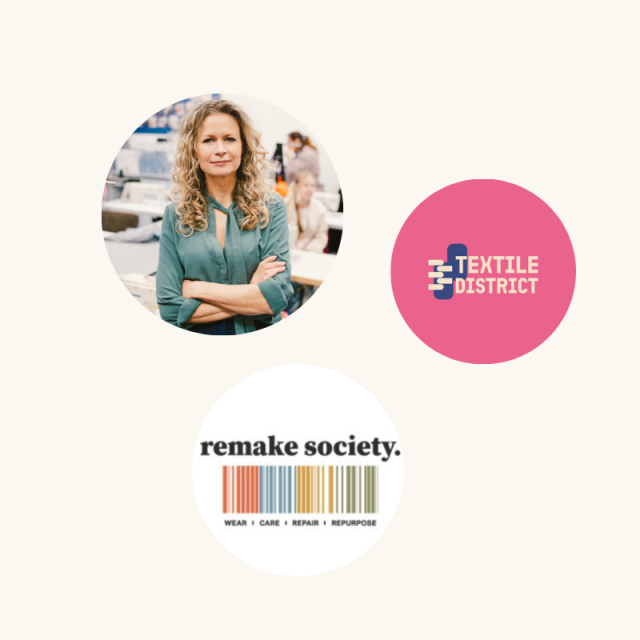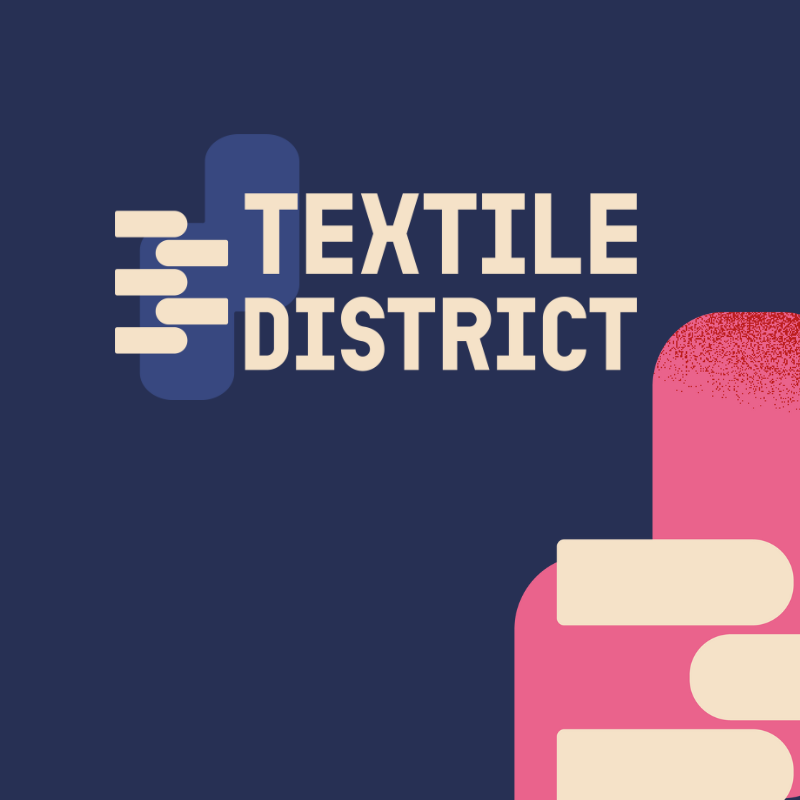Esther Smit (Remake Society): "Deeds not words, that's what the textile sector needs"

Remake Society brings together companies, governments and educational institutions to build a circular textile chain. By reusing residual textiles, training new talent and providing jobs, Remake Society creates a system where everyone contributes and benefits.
Through collaborations with companies like Zeeman and Jeans Centre, Remake Society shows that sustainable fashion can be accessible and scalable. But cooperation may be even more widespread and constructive, says Esther. "With just single projects you won't get your business case. But many companies are wait-and-see or do not yet dare to invest structurally in circular solutions," says Esther. "They are waiting for the perfect regulation or the ideal cooperation model, but it doesn't come naturally. As long as we keep thinking in little projects, we miss the opportunity to build a healthy circular business model."
"With separate projects, no one gets the business case"
Esther Smit, Remake Society
New collaborations
A great example of concrete action arose during Day for Thought. There, Esther struck up a conversation with one of the founders of Sustainers, which organises clothing swaps with companies. Esther suggested adding a pop-up repair café to this. An idea that was immediately received enthusiastically. The first try-out took place at Future Up partner Klaverblad Verzekeringen, made possible partly because Esther and Sharon van Herel - Dam of Klaverblad knew each other through the election of Rotterdam Businesswoman of the Year.
What started as a spontaneous friends' service grew into an unexpected success: the drinks were spontaneously moved to the space with the repair café, leading to conversations about clothing, repair and an inclusive workplace. "People were happy and surprised. They immediately saw the result of their repaired clothes. Impact can be that simple. This is worth repeating, and provided word-of-mouth advertising: Triodos Bank also came to me on air already."
"Make sure parties know how to find each other and start by connecting your own network"
Esther Smit, Remake Society
Conversations with ReShare and Wolkat
Remake Society has also been in talks with ReShare, part of the Salvation Army, since Day for DoingThings. "During their visit to our studio, we discovered opportunities to repair high-value garments that are now often discarded rather than recycled." A follow-up meeting is already planned.
In addition, an initial exploratory discussion took place with Wolkat, which carries out large textile productions in North Africa. "This company works with large volumes but also has smaller quantities for which Remake Society is useful as a partner. We are also looking more broadly: how can we work together complementarily? For example, by not immediately writing off clothes with production faults, but repairing them first. This is how we lift the value of textiles one step higher on the R-ladder."
Textile District as a lever for structural cooperation
Esther stresses the importance of not waiting for large-scale platforms or grants. "Just start connecting, you can see how much effect one such networking event already has. Make sure people find each other. Say: you have this problem, they have that solution. Take that step. I did that too."
According to Esther, Textile District could play a central role in activating structural collaborations. Not by setting up yet another project group, but by simply ensuring that the right parties know how to find each other. "CSR Netherlands can make a difference there as a booster. We don't need more talks. We need action." Or as they say in Rotterdam: not words, but actions.
Textile District
This interview is part of an interview series in which we interview a different link of the textile chain each time. We speak to partners participating in the Textile District programme, the breakthrough for circular textiles.
